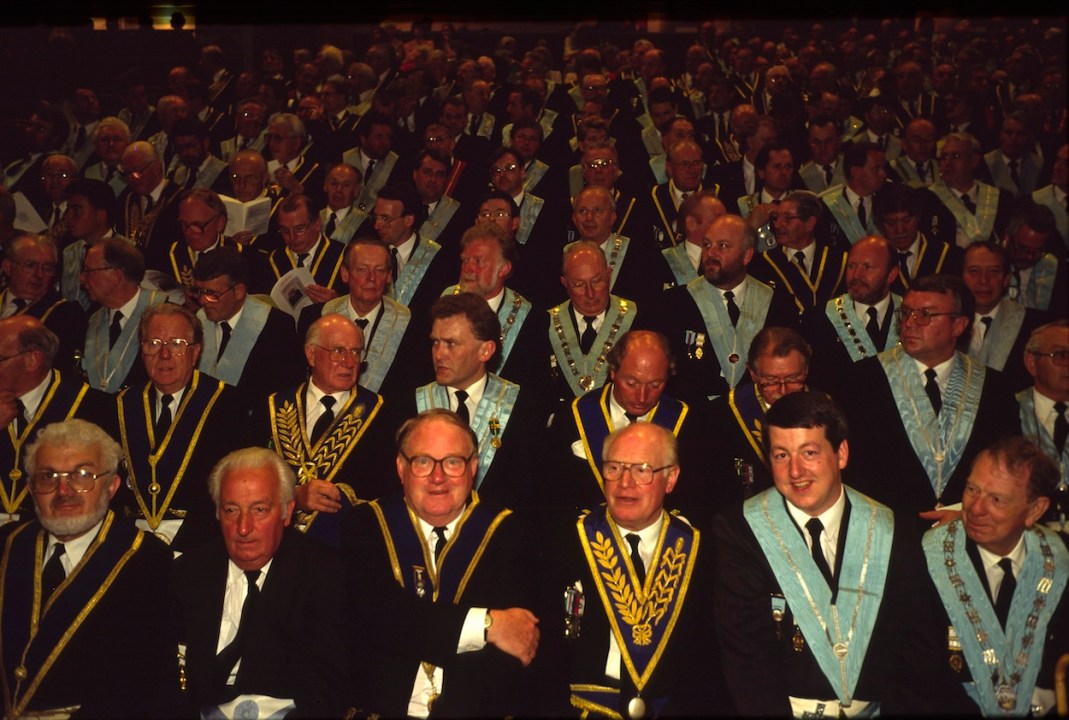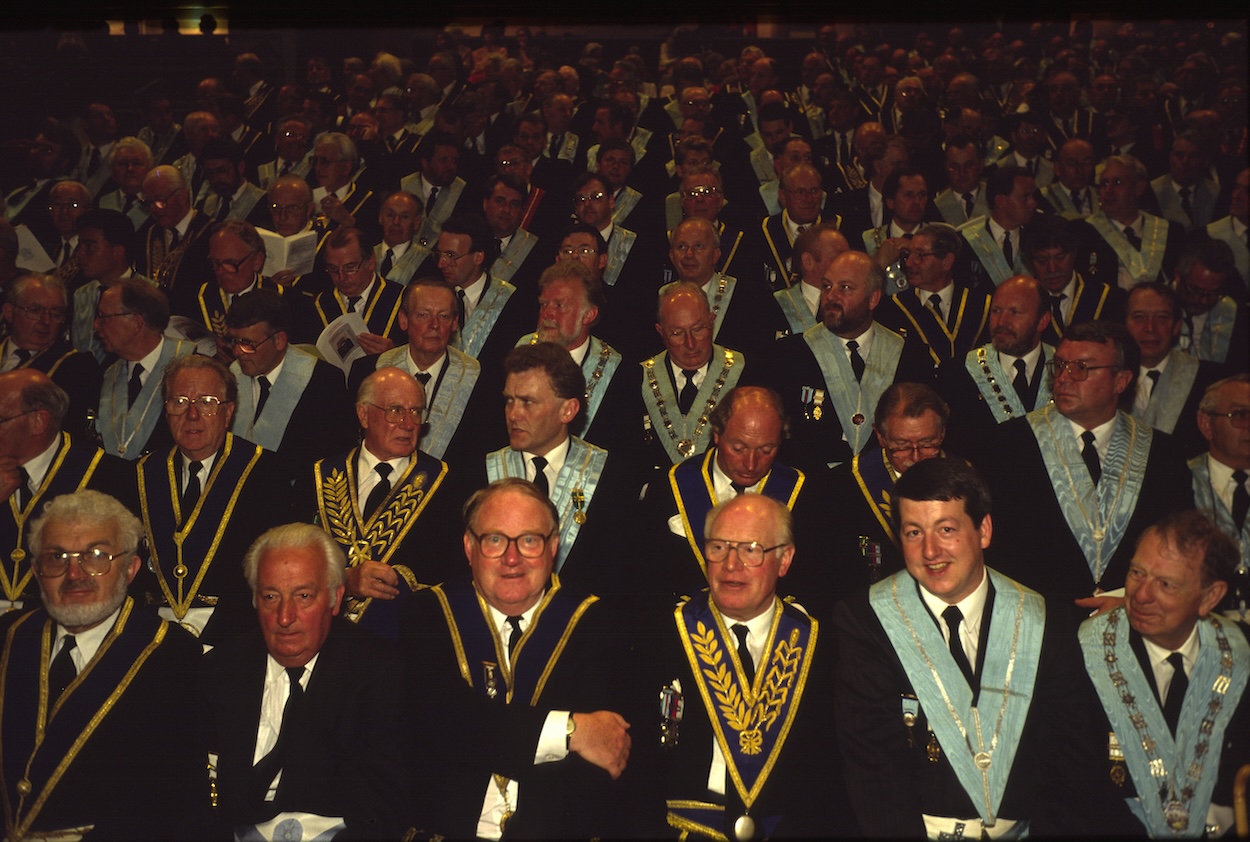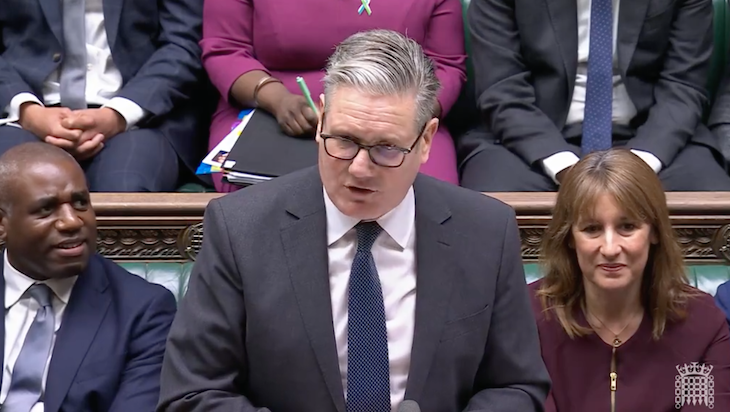Goodness, isn’t there something a bit hoary about the notion that members of the Metropolitan Police may have to declare if they’re Freemasons? The idea has come up recently in the context of discussion on ‘declarable associations’ – those organisations you’re obliged to admit to belonging to if you’re a London copper.
A spokesman for the Mayor of London, Sadiq Khan, who is in charge of the Met, has previously ruled out a compulsory register of Freemasonry in the force, but a spokesman for the mayor said improving standards in the Met ‘involves looking at organisations, including the Freemasons, and consulting to see if membership of these groups could call impartiality into question or give rise to any conflicts of loyalty when it comes to investigations, misconduct and promotions’.
So, senior police officers will be sitting down with the United Grand Lodge of England, presumably in its grandiose building in Great Queen Street, to talk things over. On the one hand, there’s the principle of transparency; on the other, the contemporary pieties about freedom of association… human rights, in other words. The panel that looked into the very murky inquiry into the death of the private investigator Daniel Morgan in a pub car park in Sydenham in 1987 has recommended that full disclosure be considered.
Personally, I can never repress a thrill when it comes to Freemasonry, chiefly because, even if they’re letting in women, I wouldn’t be able to belong to it. Catholics aren’t allowed to be Freemasons, a) because the organisation was for quite a long time pretty well a synonym for anti-Catholicism (lots of Orange lodges were associated with the movement), and b) because it’s a secret organisation and, as the nun at school explained, if you’re bound by an oath taken when you join you may be obliged to do something against your conscience.
I don’t know whether b) is true, but what I do know is that for absolutely ages it was a given that half the coppers in London belonged to the Masons and ditto half the movers in the City. In the rather grand stockbroking firm where I misspent two years after university, it was common knowledge that one of the senior partners was a Mason and he’d occasionally sound out promising young men about whether they fancied coming along. In fact, as I understood it, you didn’t even need to ask if someone was a Freemason; merely a handshake would do it. I was thrown as a young journalist when a Labour MP asked me, after shaking hands, whether I was a Mason… plainly I’d gripped him in some significant way.
Anyway, the combination of prohibition, alleged influence, mysterious ritual and exciting symbolism was sufficient to give the thing, for me, a certain allure. That was until I found out some years ago that the Grand Lodge in Great Queen Street was, mirabile dictu, throwing open its doors to the general public. How odd, I thought, as I hastened to the opening. But what a mistake that was.
I was thrown as a young journalist when a Labour MP asked me, after shaking hands, whether I was a Mason… plainly I’d gripped him in some significant way
It turned out that the temple, or whatever, is not like, as I imagined, the inside of a pyramid or thrillingly reminiscent of Solomon’s Temple. It was quite remarkably dull and in horrid taste; the central hall was more like a 1930s Odeon, and you half expected an organ to rise from the floor. The symbolism was all right, but I was used to that in the context of religion generally.
The trappings were – how can I put this? – vulgar. It was a lesson, if ever there were one, that you should never let daylight in on the magic. Once you open up the ritual to outsiders, the spectacle of men hopping around blindfold with aprons and rolled-up trousers (this is probably a travesty of more exciting activities) starts to look silly rather than reminiscent of The Magic Flute, an opera which is meant to be stuffed with Masonic symbolism.
But back to the question of full disclosure. Of course the Met should be obliged to say that its officers are Masons, because it would help determine whether promotion, for instance, could be affected by a superior officer being in the same lodge as the subordinate. It’s the secrecy which is potentially troubling. And since the Freemasons now maintain that they’re a body engaged in tireless charitable work, there can’t be much to hide. Because there are still concerns about its influence. I can’t say Freemasonry scares me any more than the Rotarian Association nowadays, but I was troubled by James Tidmarsh’s report for this paper recently that President Macron had received some sort of endorsement from the organisation… why? To what end?
Once the police admit to being in the Freemasons, the thing becomes unthreatening. Trouble is, it also becomes humdrum and commonplace, but that may be a price worth paying.








Comments